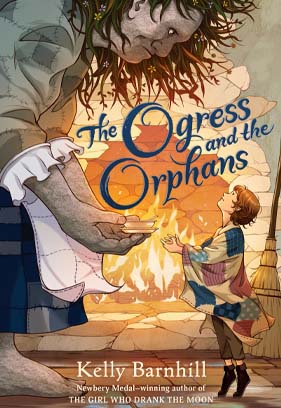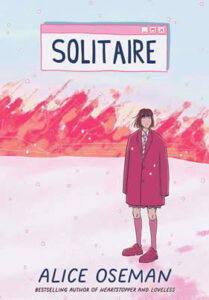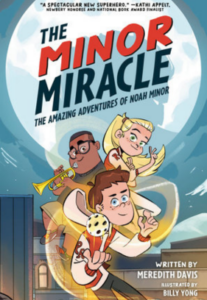Stone-in-the-Glen was a lovely town once. Now it’s decidedly unlovely. Dragons have a way of doing that.
One night, a dragon burned the town’s wonderful library to the ground. The school burned next. After that, the town’s beautiful fruit trees died and the park became a giant sinkhole. Stone-in-the-Glen fell so totally on hard times that neighbors grew suspicious of one another.
Still, Stone-in-the-Glen still boasts some nice spots, too. On the outskirts of this unlovely town, for example, lives a lovely family of orphans. Fifteen children reside in the orphanage run by an elderly couple, Matron and Myron. The kids have grown up in this large family scraping to get by, but they love their elderly benefactors as they love each other—even when they’re as different from each other as different can be. For instance, Anthea is resourceful and logical. Bartleby is into philosophy, while his sister, Cass, is a girl of action.
But the town’s misery seems to be impacting this happy little corner, too. The children certainly hope their beautiful family can remain intact, but dwindling income and scant meals threaten the life they’ve always known.
So, how does a town decline to the point where money for the orphanage disappears? Well, it seems to all come back to those dragons again. Not only do they burn things to the ground, but it’s said that with their magic, those evil things can put on another creature’s skin and cause all sorts of mischief. Surely they’re behind the orphanage’s struggles as well, right?
Thank goodness for the dashing dragon hunter who recently eliminated all of those terrifying beasts—or so he says. The people were so grateful, they even asked the dragon hunter to be the town’s mayor.
But the truth is, no one has ever actually seen him fight a dragon. Nor have they seen any of the dragons he killed. Or, come to think of it, no one can ever recall seeing him and a dragon in the same place. The people of Stone-in-the-Glen just know they haven’t caught sight of a dragon in a long time. So, it seems perfectly reasonable for that dragon-besting hero to live in luxury and enjoy his pile of gold coins.
Oh, and there’s one other character in this story who must be mentioned: the Ogress. She lives on the outer outskirts of the town. She built a sturdy house and barn there and grew a magnificent garden. The Ogress made friends with the crows and has a small herd of sheep and a dog. And she’s nice. Really.
She befriended the orphans. She even went out of her way to help the neighbors in the nearby sad little town—secretly leaving vegetables, bread and baked goods on their doorsteps under the cover of night.
However, in spite of her secret good deeds and her desire to find a place where she can truly belong, there are some who look meanly upon the Ogress because of her size and ogrish appearance. And when one of the orphans goes missing, the mayor turns his steely gaze toward her. He encourages the town’s animosity. Some townspeople attack the Ogress and then burn down her barn.
Things may go from pretty bad to even worse unless someone can save the day. But what can a bunch of orphans and a big ol’ Ogress do? Is it possible to tell of someone’s goodness if no one wants to listen?











